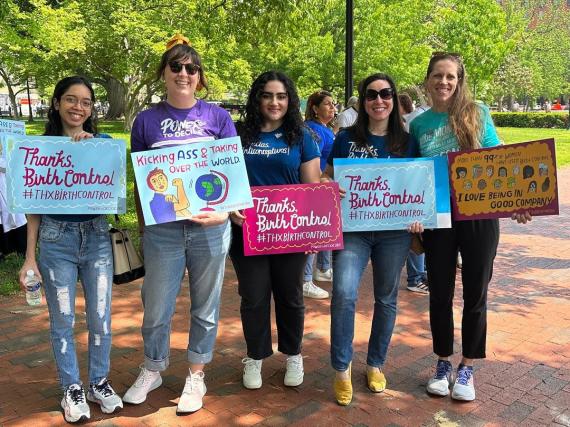Help Young People Today: #TalkingIsPower 2019
During my time at Power to Decide, I’ve been around as my colleagues answered hundreds of anonymous questions from young people, such as:
What if I'm ready, but my boyfriend's not?
How do I ask a girl out face-to-face?
Why does he want to wait till next year to date?
Can I get pregnant if I am on birth control pills, but they were prescribed for skin problems?
My boyfriend doesn't want to use a condom if we have sex. What do I do? I don't want to risk myself.
There is a big party on Friday all my friends are going I asked my boyfriend to go with me, but we had a massive argument and he said he didn’t want to go so I am not going. I really want to go but feel as though I can’t, what do I do?
Once you hear questions like these, it becomes clear that young people need champions they can go to. This is why the work of Power to Decide is so important.
Since our founding in 1996, Power to Decide has worked to ensure that all young people—no matter who they are, where they live, or what their economic status might be—have the power to decide if, when, and under what circumstances to get pregnant and have a child. We provide trusted, high-quality, and accurate information—backed by research—on reproductive health and contraceptive methods in a variety of ways so young people have what they need to make informed decisions.
Why is this so important?
1. Being young is difficult. Young people are dealing with all kinds of feelings, emotions, and situations for the first time. Plus, the older you get, the more you know, and you can take care of yourself so why won’t your parents just leave you alone?
2. Young people are inundated with false information, half-truths, rumors, and myths about sex, love, relationships, and birth control. Adults twice their age and older have trouble distinguishing fact from fiction online, so of course young people sometimes struggle to tell the difference, especially regarding what could feel like embarrassing or confusing topics.
And because of you and your support of this comprehensive approach, there has been great success: the teen birth rate dropped another 7% to 18.8 births per 1,000 girls last year—a 70% drop from its peak of 61.8 births per 1,000 in 1991.
Nevertheless, there is still more to do. Despite significant declines, due to systematic inequalities in access to education and health care, the teen birth rate is roughly twice as high among Latina (29 births per 1,000) and African American teens (28 births per 1,000) as compared with non-Hispanic white teens (13 births per 1,000).
You can create new opportunities for young people to get informed, take control, and advocate for themselves—and to protect the amazing life opportunities that lie ahead of them with a generous, tax-deductible donation today.
As we approach proms, graduations, and the long days of summer, there are going to be lots of young people out there finding themselves in unfamiliar situations, experiencing firsts, unsure of themselves, and in need of fact-based, unbiased information and guidance.
Young people need champions. They need you.



